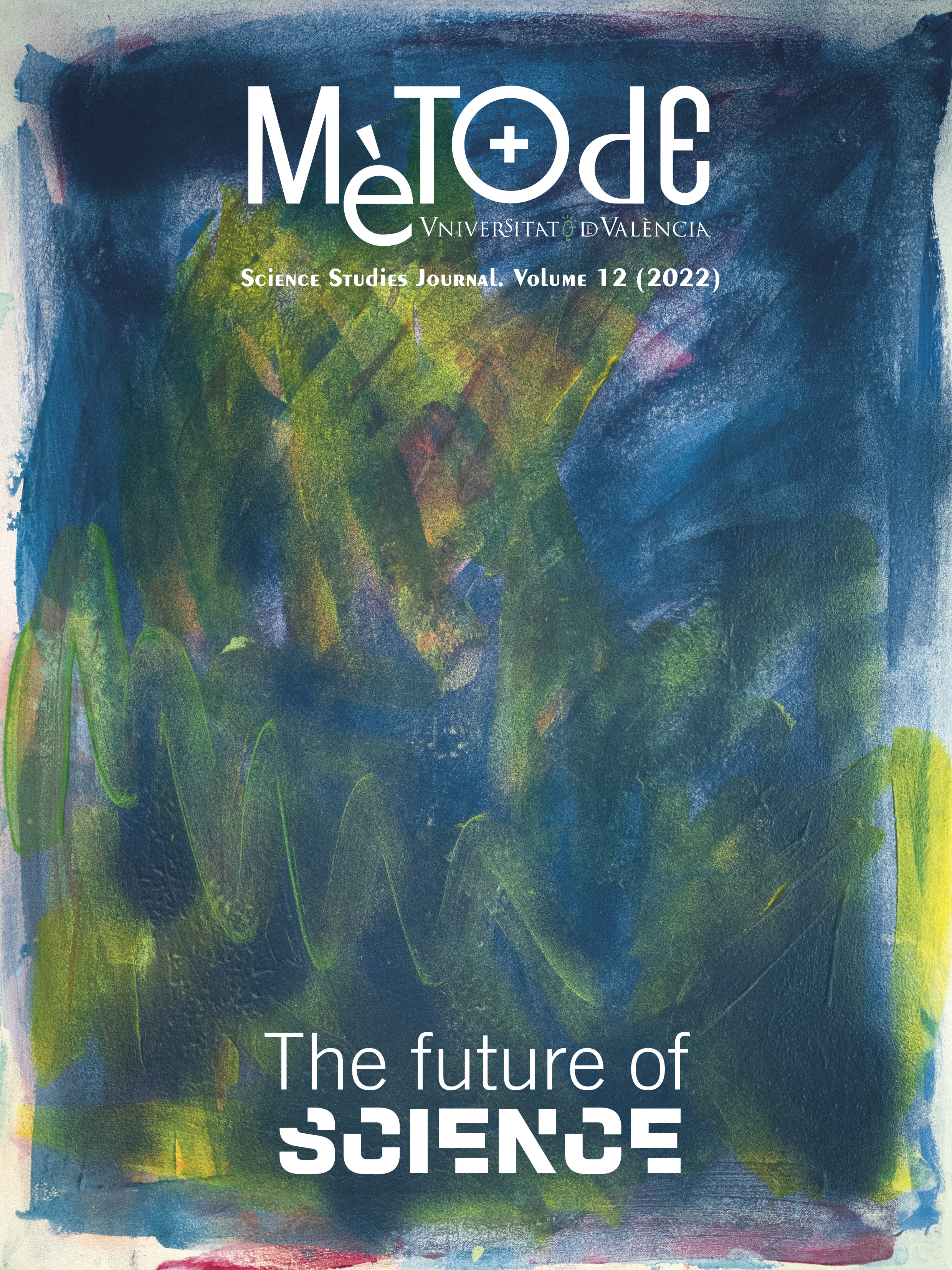Can theology be a science? An epistemological reflection
DOI:
https://doi.org/10.7203/metode.12.16612Keywords:
theology, science, faith, reason, evidence Abstract
Abstract
Many dubious disciplines have been removed from academic institutions, but theology is not one of them, as it is still taught in respectable universities. This article argues that theology does not deserve that special treatment. Theology has long pretended to be a science, but it can never be, because ultimately, theology is grounded on faith and authority, two tenets that run counter to the scientific method. Natural theology appeals to evidence and reason, but it also fails in its endeavor. More recent theologians admit that their discipline is not science per se, but still consider it legitimate in its quest for meaning. There are also reasons to doubt this claim, as there is no need to appeal to the supernatural to find meaning.
 Downloads
Downloads
 References
References
Adams, M. M. (1992). Fides quaerens intellectum: St. Anselm’s method in philosophical theology. Faith and Philosophy, 9(4), 409–435. https://doi.org/10.5840/faithphil19929434
Adams, R. M. (1979). Moral arguments for theistic belief. In C. F. Delaney (Ed.), Rationality and religious belief (pp. 116–140). University of Notre Dame Press.
Bebbington, D. (2011). The Texas sharpshooter fallacy. Think, 10(27), 71–72. https://doi.org/10.1017/S1477175610000412
Betty, L. S., & Cordell, B. (1987). God and modern science: New life for the teleological argument. International Philosophical Quarterly, 27(4), 409–435.
Craig, W. L. (2003). Design and the anthropic fine-tuning of the Universe. In N. A. Manson (Ed.), God and design: The teleological argument and modern science (pp. 170–192). Routledge.
Craig, W. L., & Moreland, J. P. (Eds.). (2012). The Blackwell companion to natural theology (Vol. 49). John Wiley & Sons. https://doi.org/10.1002/9781444308334
Dawkins, R. (1996). The blind watchmaker: Why the evidence of evolution reveals a universe without design. W. W. Norton & Company.
Dawkins, R. (2016). The god delusion. Random House.
Edwards, D., Ashmore, M., & Potter, J. (1995). Death and furniture: The rhetoric, politics and theology of bottom line arguments against relativism. History of the Human Sciences, 8(2), 25–49. https://doi.org/10.1177/095269519500800202
Flew, A. (2000). Theology and falsification. Philosophy Now, 29. https://philosophynow.org/issues/29/Theology_and_Falsification_A_Golden_Jubilee_Celebration
Gould, S. J. (1999). Rocks of ages: Science and religion in the fullness of life. Ballantine.
Henderson, D. E. (2008). Implementing methodological secularism: The teaching and practice of science in contentious times. In A. Keysar & B. A. Kosmin (Eds.), Secularism & science in the 21st century (pp. 105–116). Institute for the Study of Secularism in Society and Culture.
Hintikka, J. (1981). Kant on existence, predication, and the ontological argument. Dialectica, 35(1), 127–146.
Huttinga, W. (2014). ‘Marie Antoinette’or Mystical Depth? Herman Bavinck on Theology as Queen of the Sciences. In J. Eglinton & G. Harinck (Eds.), Neo-Calvinism and the French revolution (pp. 143–154). Bloomsbury T&T Clark. http://doi.org/10.5040/9780567662415.0014
Koons, R. C. (1997). A new look at the cosmological argument. American Philosophical Quarterly, 34(2), 193–211.
Mackie, J. L. (1955). Evil and omnipotence. Mind, 64(254), 200–212. https://doi.org/10.1093/mind/LXIV.254.200
Malcolm, N. (1960). Anselm’s ontological arguments. The Philosophical Review, 69(1), 41–62. https://doi.org/10.2307/2182266
McGrath, A. E. (2011). Surprised by meaning: Science, faith, and how we make sense of things. Westminster John Knox Press.
Nielsen, K. (1967). Wittgensteinian fideism. Philosophy, 42(161), 191–209. https://doi.org/10.1017/S0031819100001285
Oppy, G. (2010). Uncaused beginnings. Faith and Philosophy, 27(1), 61–71. https://doi.org/10.5840/faithphil20102714
Pinker, S. (2018). Enlightenment now: The case for reason, science, humanism, and progress. Penguin.
Pruss, A. R. (1998). The Hume-Edwards principle and the cosmological argument. International Journal for Philosophy of Religion, 43(3), 149–165.
Rowe, W. L. (1979). The problem of evil and some varieties of atheism. American Philosophical Quarterly, 16(4), 335–341.
Solon, T. P. M., & Wertz, S. K. (1969). Hume’s argument from evil. The Personalist, 50(3), 383–392. https://doi.org/10.1111/j.1468-0114.1969.tb08798.x
Thagard, P. (2010). The brain and the meaning of life. Princeton University Press.
Torrance, T. F. (1972). Newton, Einstein and scientific theology. Religious Studies, 8(3), 233–250. https://doi.org/10.1017/S0034412500005904
Trivers, R. L. (1971). The evolution of reciprocal altruism. The Quarterly Review of Biology, 46(1), 35–57. https://doi.org/10.1086/406755
Downloads
Additional Files
Published
How to Cite
-
Abstract1779
-
PDF91
-
(Español)3
Issue
Section
License
![]()
All the documents in the OJS platform are open access and property of their respective authors.
Authors publishing in the journal agree to the following terms:
- Authors keep the rights and guarantee Metode Science Studies Journal the right to be the first publication of the document, licensed under a Creative Commons Attribution-NonCommercial-NoDerivatives 4.0 International License that allows others to share the work with an acknowledgement of authorship and publication in the journal.
- Authors are allowed and encouraged to spread their work through electronic means using personal or institutional websites (institutional open archives, personal websites or professional and academic networks profiles) once the text has been published.





